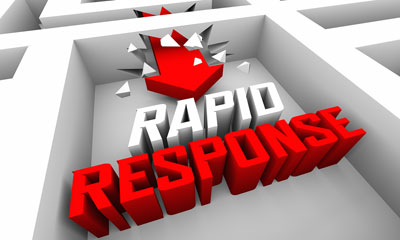Thoughts on Excellence Free E-Newsletter Series
Volume 20, Issue No. 5b
October 15, 2021
By Dan Coughlin

It is a dangerous thing to expect other people to respond to you in a specific way for everything that you do or say. It can greatly damage relationships.
When a person in a work situation expects a raise, a promotion, or a compliment for every action he or she does, it puts a strain on the relationship. The other person wonders if the only reason the first person does anything is in order to get something in return. It starts to feel like when a dog comes into your house expecting a treat every time in exchange for coming into the house.
This same phenomenon happens in a friendship. When a person compliments a friend or does something nice for a friend and then acts as though the friend should now return the compliment or the nice deed, it starts to feel as less of a friendship and more of a transaction. More quid pro quo than just being kind and thoughtful.
And it’s the same in a marriage when one spouse thinks he or she is going the extra mile around the house and then expects the other person to immediately and constantly say thank you.
All of these situations happen on a regular basis, and they all put a strain on the relationships.
This is a subtle aspect of interpersonal effectiveness. Be willing to do and to say good things for and to other people. Let go of the need for expecting specific responses. This will take a significant strain out of the relationship, and it will allow both of you to enjoy being with each other a great deal more often.
And the reverse is true as well. Don’t feel pressured to deliver an expected response. If you want to thank the other person, then do so. But don’t thank the other person just because it’s obvious that the other person is expecting you to do so. Do and say what you think is the right thing to do and say. Otherwise, you can end up in a puppet-puppeteer relationship just as easily as if you expect the other person to respond to you with certain words and behaviors.
A good relationship at work, home, or in your community is based on a mutual respect for each other where both individuals are allowed to say things and do things, or not say and do things, based on what the person believes is the right thing to do or say. We should not act as though the other person is our personal robot to whom we can program their responses. Of course, there are parameters to all of this, but the point of this article is to let go of expecting people to say and do things simply based on what you said and did.
Republishing Articles
My newsletters, Thoughts on Excellence, have been republished in approximately 40 trade magazines, on-line publications, and internal publications for businesses, universities, and not-for-profit organizations over the past 20+ years. If you would like to republish all or part of my monthly articles, please send me an e-mail at dan@thecoughlincompany.com with the name of the article you want in the subject heading. I will send you the article in a word document.




